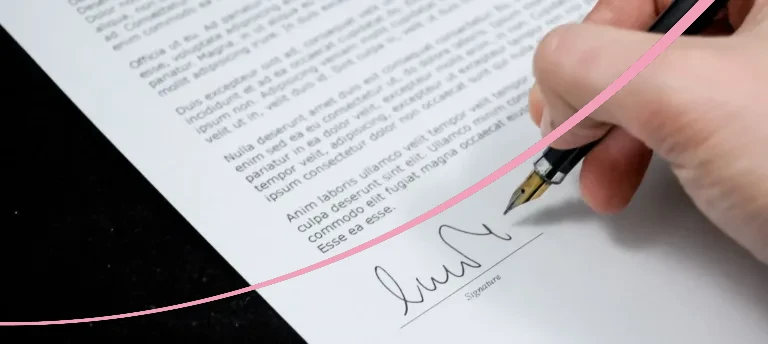When someone dies, their will determines the distribution and administration of their estate. But what happens if a will is lost or missing?
Vicki Gulliver, Associate in Lodders’ Private Client department, explains.
Where should you look if a will is missing?
When a person dies, their will, if they made one, is key in determining the distribution and administration of their estate (money, property and possessions). The testator (the person making the will) usually names an executor (or executors), who is the person(s) legally authorised to deal with the administration of the estate.
However, it is not uncommon for a will to be misplaced or lost. If a will is missing, there are a number of people and organisation you can ask for help.
The family or persons trying to locate a will should keep in mind that they must look for the most recent will of the deceased, and that the will should be correctly witnessed and signed, otherwise the will may not be valid.
Where do people store wills?
Homes
Many people store wills in their homes, perhaps in a safe or private office space. It might be that the deceased kept their will with their important financial paperwork or other key documents. Therefore, a thorough search of the deceased’s home is often a good starting point.
Even if the will itself is not located at the home, there might be a reference to where it is being held, for example a solicitors’ letter or a receipt from a wills storage facility.
Friends and advisers
Speaking to the deceased’s relatives, friends or professional advisers might also help in locating the whereabouts of a will. Law firms, for example, often retain original wills in archiving facilities when preparing of the will in the lifetime of the deceased, and are therefore a good starting point when searching for a will.
Banks and building societies
It was once commonplace for banks and building societies to store wills for their clients, perhaps with original property title deeds, especially if there was a mortgage with the same institution. Therefore, it’s a good idea to contact any banks or building societies with whom the deceased had accounts with to see if they are storing the will.
Other organisations
HM Courts & Tribunals Service (HMCTS) also offers a will storage facility, and enquiries can be made with them as to the safekeeping of a will. Adverts for a will can also be placed in the Law Society Gazette.
If the will still cannot be found, services such as The National Will Register, which holds records of over five million registered wills, can conduct a will search. They also offer a more exhaustive search, looking for wills that may not have been registered, but that are held by law firms in locations associated with the deceased. This can be a nationwide or geographically targeted search. The cost of these searches is usually covered by (reclaimed from) the estate.
What should you do if you can’t find a will?
If, after every search has been thoroughly completed, the original will is still not found but believed to exist, it may be possible to administer the estate using a copy, reconstruction or even draft of the will obtained via an application to the Probate Registry.
This application follows a strict procedure as set out in Rule 54 of The Non-Contentious Probate Rules 1987, and must be accompanied by an affidavit or witness statement, explaining the grounds for the application and any other evidence supporting the existence of the will.
Rebuttable presumption
If the original will was known to have been in the testator’s possession before their death but cannot be found after death, there is a rebuttable presumption that the will was destroyed by the testator, with the intention to revoke. This presumption will need to first be rebutted before the proof of a copy or reconstruction of the will can be obtained.
It is important to note that if the will is not found and an application to proceed with a copy is not approved, the estate may need to be administered according to the intestacy rules. In some cases, these rules may not produce the desired outcome or be in line with the wishes of the deceased.
Vicki Gulliver is an associate and chartered legal executive in Lodders’ Private Client department, and specialises in a range of matters including wills, Lasting Powers of Attorney (LPAs), estate administration, and probate issues.
This article first published on The Gazette website here.
Contact usVicki is an associate and chartered legal executive in Lodders’ Private Client team.
She advises clients on a broad range of private client matters including wills, Lasting Powers of Attorney (LPAs) and the administration of estates. Vicki also assists families dealing with probate issues.

Read more
Other news, insights and events







